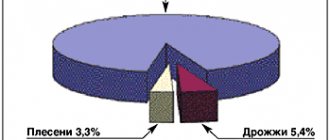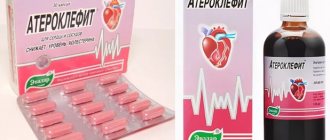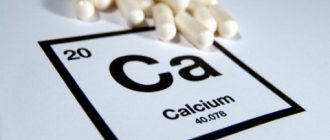Ethoxidol
Ethoxidol® is an inhibitor of free radical processes, has membrane protective, antitoxic, nootropic, anticonvulsant, anxiolytic effects, and increases the body's resistance to stress. Ethoxidol® has anti-ischemic properties, improves blood flow in the ischemic zone, limits the area of ischemic damage, exhibits a hypolipidmic effect, reduces the content of total cholesterol and low-density lipoproteins.
The drug increases the body's resistance to the effects of various damaging factors, to oxygen-dependent pathological conditions (shock, hypoxia and ischemia, cerebrovascular accidents, intoxication with alcohol and antipsychotics (neuroleptics)).
The drug improves cerebral metabolism and blood supply to the brain, improves microcirculation and rheological properties of blood, and reduces platelet aggregation. Stabilizes the membrane structures of blood cells (erythrocytes and platelets) during hemolysis.
The mechanism of action of the drug is due to its antioxidant, antihypoxic and membrane protective effects. It inhibits lipid peroxidation, increases superoxide oxidase activity, increases the lipid-protein ratio, reduces membrane viscosity, and increases its fluidity. Modulates the activity of membrane-bound enzymes (calcium independent phosphodiesterase, adenylate cyclase, acetylcholinesterase), receptor complexes (benzodiazepine, GLMK, acetylcholine), which enhances their ability to bind to ligids, helps preserve the structural and functional organization of biomembranes, neurotransmitter transport and improve synoptic transmission.
Pharmacokinetics
After oral administration, it is quickly and completely absorbed from the gastrointestinal tract at an average rate of 0.569±0.086 hours. In healthy volunteers, it was found that with oral administration of Ethoxidol tablets at a dose of 100 mg, Cmax in the blood plasma is achieved after 0.28 ± 0.08 hours and amounts to 487.0 ± 72.4 ng/ml, followed by rapid elimination of the drug, with T1/2 = 1.46±0.13 hours.
Ethoxidol® is quickly distributed throughout the organs and tissues of the body. Determined in blood plasma for 7-10 hours.
The drug is intensively metabolized in the liver with the formation of phosphate-3-hydroxypyridine and glucurone-conjugated products.
Ethoxidol solution d/in 50 mg/ml 5 ml N10 (Synthesis)
Ethoxidol is an inhibitor of free radical processes, has membrane protective, antihypoxic, nootropic, anticonvulsant, anxiolytic effects, and increases the body's resistance to stress. Ethoxidol has anti-ischemic properties, improves blood flow in the ischemic zone, limits the area of ischemic damage, exhibits hypolipidemic effects, reduces the content of total cholesterol and low-density lipoproteins. The drug increases the body's resistance to the effects of various damaging factors, to oxygen-dependent pathological conditions (shock, hypoxia, ischemia, cerebrovascular accidents, intoxication with alcohol and antipsychotics (neuroleptics)). Ethoxidol is able to modulate the functional-metabolic state of red blood cells and correct the functional status of the liver and kidneys. By restoring the activity of the synthesis of the high-energy metabolite 2,3-diphosphoglycerate, the drug increases the dissociation of oxyhemoglobin and restores oxygen tension. The effectiveness of this drug for encephalopathies is due to an increase in oxygen in the arterial blood; penetration of ethoxydol through the blood-brain barrier. The drug improves cerebral metabolism and blood supply to the brain, improves microcirculation and rheological properties of blood, and reduces platelet aggregation. Stabilizes the membrane structures of blood cells (erythrocytes and platelets) during hemolysis. The mechanism of action of the drug is due to its antioxidant, antihypoxic and membrane protective effects. It inhibits lipid peroxidation, increases the activity of superoxide dismutase, reduces the content of total organic peroxides, which helps accelerate aldosterone metabolism (by normalizing the activity of the CYP3A4 isoenzyme), increases the lipid-protein ratio, reduces membrane viscosity, and increases its fluidity. By suppressing peroxides and oxidant activity, it blocks the oxidation of β-lipoproteins (low-density lipoproteins), which are the main substrate for the formation of atherosclerotic plaques in blood vessels. Modulates the activity of membrane-bound enzymes (calcium independent phosphodiesterase, adenylate cyclase, acetylcholinesterase), receptor complexes (benzodiazepine, GABA, acetylcholine), which enhances their ability to bind to ligands, helps preserve the structural and functional organization of biomembranes, transport of neurotransmitters and improves synaptic transmission.
Ethoxidol 100 mg 50 pcs. chewable tablets
pharmachologic effect
Ethoxidol® is an inhibitor of free radical processes, has membrane protective, antitoxic, nootropic, anticonvulsant, anxiolytic effects, and increases the body's resistance to stress.
Ethoxidol® has anti-ischemic properties, improves blood flow in the ischemic zone, limits the area of ischemic damage, exhibits a lipid-stimulating effect, reduces the content of total cholesterol and low-density lipoproteins. The drug increases the body's resistance to the effects of various damaging factors, to oxygen-dependent pathological conditions (shock, hypoxia and ischemia, cerebrovascular accidents, intoxication with alcohol and antipsychotics (neuroleptics)).
The drug improves cerebral metabolism and blood supply to the brain, improves microcirculation and rheological properties of blood, and reduces platelet aggregation. Stabilizes the membrane structures of blood cells (erythrocytes and platelets) during hemolysis.
The mechanism of action of the drug is due to its antioxidant, antihypoxic and membrane protective effects. It inhibits lipid peroxidation, increases superoxide oxidase activity, increases the lipid-protein ratio, reduces membrane viscosity, and increases its fluidity. Modulates the activity of membrane-bound enzymes (calcium independent phosphodiesterase, adenylate cyclase, acetylcholinesterase), receptor complexes (benzodiazepine, GLMK, acetylcholine), which enhances their ability to bind to ligids, helps preserve the structural and functional organization of biomembranes, neurotransmitter transport and improve synoptic transmission.
Composition and release form Ethoxidol 100 mg 50 pcs. chewable tablets
Tablets - 1 tablet:
- Active substance: ethylmethylhydroxypyridine malate 100 mg.
- Excipients: acetylglutamic acid (N-acetyl L-glutamic acid) - 68 mg, deanol (2-dimethylaminoethanol) - 32 mg, glycine - 20 mg, microcrystalline cellulose - 260.1 mg, povidone (kollidon 90F) - 1.6 mg, lactose monohydrate (milk sugar) - 36 mg, pregelatinized starch (starch 1500) - 30 mg, colloidal silicon dioxide (Aerosil) - 9.5 mg, magnesium stearate - 6 mg, croscarmellose sodium (primellose) - 12.8 mg, sodium cyclamate - 18 mg, flavoring orange (food flavor "Orange") - 6 mg.
50 pcs. — cellular contour packaging (aluminum/PVC), cardboard packs.
50 pcs. — polymer jars (1) — cardboard packs.
Description of the dosage form
Chewable tablets; white or white with a creamy tint, flat-cylindrical in shape, with a chamfer and a notch; “marbling”, inclusions and some surface roughness are allowed.
Directions for use and doses
Ethoxidol® tablets are prescribed orally. The tablets are chewed and washed down with water. For complex therapy of coronary heart disease and treatment of ischemic stroke, 100 mg (1 tablet) is prescribed 3 times a day, gradually increasing the dose until a therapeutic effect is obtained. The maximum single dose is 200 mg: daily dose is 800 mg. The course is at least 2 months, repeated courses are recommended by a doctor. The duration of treatment and the choice of individual dose depend on the severity of the patient’s condition and the effectiveness of treatment.
For complex treatment of mild and moderate cognitive disorders, the drug is prescribed without limiting the course of treatment in duration at a dose of 100 mg 3-4 times a day.
Pharmacokinetics
After oral administration, it is quickly and completely absorbed from the gastrointestinal tract at an average rate of 0.569±0.086 hours. In healthy volunteers, it was found that with oral administration of Ethoxidol tablets at a dose of 100 mg, C max in the blood plasma is achieved after 0.28 ± 0.08 hours and is 487.0 ± 72.4 ng/ml, followed by rapid elimination of the drug, with T1/2 ;= 1.46±0.13 hours.
Ethoxidol® is quickly distributed throughout the organs and tissues of the body. Determined in blood plasma for 7-10 hours.
The drug is intensively metabolized in the liver with the formation of phosphate-3-hydroxypyridine and glucurone-conjugated products.
Indications for use Ethoxidol 100 mg 50 pcs. chewable tablets
- Coronary heart disease (as part of complex therapy);
- complex therapy of ischemic stroke;
- encephalopathy;
- mild to moderate cognitive impairment.
Contraindications
- Hypersensitivity to the components of the drug;
- lactose intolerance, lactase deficiency, glucose-galactose malabsorption;
- acute liver and/or kidney failure;
- pregnancy, lactation period;
- age under 18 years (efficacy and safety have not been established).
Application Ethoxidol 100 mg 50 pcs. Chewable tablets during pregnancy and breastfeeding
Use during pregnancy and breastfeeding
Ethoxidol is contraindicated during pregnancy and breastfeeding, since strictly controlled clinical studies of the safety of the drug during pregnancy and lactation have not been conducted.
Use in children
Contraindicated for children under 18 years of age.
special instructions
Impact on the ability to drive vehicles and operate machinery
During the treatment period, care must be taken when driving vehicles and engaging in other potentially hazardous activities that require increased concentration and speed of psychomotor reactions.
Overdose
Due to the low toxicity of the drug, an overdose is unlikely. In case of accidental overdose, symptoms of sleep disturbance may occur - drowsiness, insomnia. Treatment is symptomatic.
Side effects Ethoxidol 100 mg 50 pcs. chewable tablets
Usually the drug is well tolerated. In rare cases, allergic reactions, dyspeptic disorders, nausea and dry mouth, and diarrhea may occur, which quickly disappear on their own or when the drug is discontinued. With prolonged use, flatulence and sleep disturbances (drowsiness or difficulty falling asleep) may occur.
Drug interactions
Strengthens the effect of antiepileptic drugs (carbamazepine). antiparkinsonian drugs (levodopa) and benzodiazepine anxiolytics. Increases the antianginal activity of nitro drugs and the antihypertensive activity of ACE inhibitors and beta-blockers. Reduces the toxic effects of ethyl alcohol.
Ethoxidol chewable tablets 100 mg No. 50
Compound
Active substance: ethylmethylhydroxypyridine malate - 100 mg.
Excipients: acetylglutamic acid (N-acetyl L-glutamic acid) - 68 mg, deanol (2-dimethylaminoethanol) - 32 mg, glycine - 20 mg, microcrystalline cellulose - 260.1 mg, povidone (kollidon 90F) - 1.6 mg, lactose monohydrate (milk sugar) - 36 mg, pregelatinized starch (starch 1500) - 30 mg, colloidal silicon dioxide (Aerosil) - 9.5 mg, magnesium stearate - 6 mg, croscarmellose sodium (primellose) - 12.8 mg, sodium cyclamate - 18 mg, flavoring orange (food flavor "Orange") - 6 mg.
Pharmacokinetics
After oral administration, it is quickly and completely absorbed from the gastrointestinal tract at an average rate of 0.569±0.086 hours.
In healthy volunteers, it was found that with oral administration of Ethoxidol tablets at a dose of 100 mg, Cmax in the blood plasma is achieved after 0.28 ± 0.08 hours and amounts to 487.0 ± 72.4 ng/ml, followed by rapid elimination of the drug, with T1/2 = 1.46±0.13 hours. Ethoxidol® is quickly distributed throughout the organs and tissues of the body. Determined in blood plasma for 7-10 hours.
The drug is intensively metabolized in the liver with the formation of phosphate-3-hydroxypyridine and glucurone-conjugated products.
Indications for use
- coronary heart disease (as part of complex therapy);
- complex therapy of ischemic stroke;
- encephalopathy;
- mild to moderate cognitive impairment.
Contraindications
- hypersensitivity to the components of the drug;
- lactose intolerance, lactase deficiency, glucose-galactose malabsorption;
- acute liver and/or kidney failure;
- pregnancy, lactation period;
- age under 18 years (efficacy and safety have not been established).
Directions for use and doses
Ethoxidol® tablets are prescribed orally.
The tablets are chewed and washed down with water. For complex therapy of coronary heart disease and treatment of ischemic stroke, 100 mg (1 tablet) is prescribed 3 times a day, gradually increasing the dose until a therapeutic effect is obtained. The maximum single dose is 200 mg: daily dose is 800 mg. The course is at least 2 months, repeated courses are recommended by a doctor. The duration of treatment and the choice of individual dose depend on the severity of the patient’s condition and the effectiveness of treatment.
For complex treatment of mild and moderate cognitive disorders, the drug is prescribed without limiting the course of treatment in duration at a dose of 100 mg 3-4 times a day.
Storage conditions
In a dry place, protected from light, at a temperature not exceeding 25°C. Keep out of the reach of children.
Best before date
3 years. Do not use after the expiration date stated on the package.
Description
Antioxidant agent.
Dosage form
Chewable tablets are white or white with a creamy tint, flat-cylindrical in shape, with a chamfer and a score; “marbling”, inclusions and some surface roughness are allowed.
Use in children
Contraindicated for children under 18 years of age.
Pharmacodynamics
Ethoxidol® is an inhibitor of free radical processes, has membrane protective, antitoxic, nootropic, anticonvulsant, anxiolytic effects, and increases the body's resistance to stress.
Ethoxidol® has anti-ischemic properties, improves blood flow in the ischemic zone, limits the area of ischemic damage, exhibits a hypolipidmic effect, reduces the content of total cholesterol and low-density lipoproteins. The drug increases the body's resistance to the effects of various damaging factors, to oxygen-dependent pathological conditions (shock, hypoxia and ischemia, cerebrovascular accidents, intoxication with alcohol and antipsychotics (neuroleptics)).
The drug improves cerebral metabolism and blood supply to the brain, improves microcirculation and rheological properties of blood, and reduces platelet aggregation. Stabilizes the membrane structures of blood cells (erythrocytes and platelets) during hemolysis.
The mechanism of action of the drug is due to its antioxidant, antihypoxic and membrane protective effects. It inhibits lipid peroxidation, increases superoxide oxidase activity, increases the lipid-protein ratio, reduces membrane viscosity, and increases its fluidity. Modulates the activity of membrane-bound enzymes (calcium independent phosphodiesterase, adenylate cyclase, acetylcholinesterase), receptor complexes (benzodiazepine, GLMK, acetylcholine), which enhances their ability to bind to ligids, helps preserve the structural and functional organization of biomembranes, neurotransmitter transport and improve synoptic transmission.
Side effects
Usually the drug is well tolerated. In rare cases, allergic reactions, dyspeptic disorders, nausea and dry mouth, and diarrhea may occur, which quickly disappear on their own or when the drug is discontinued. With prolonged use, flatulence and sleep disturbances (drowsiness or difficulty falling asleep) may occur.
Use during pregnancy and breastfeeding
Ethoxidol is contraindicated during pregnancy and breastfeeding, since strictly controlled clinical studies of the safety of the drug during pregnancy and lactation have not been conducted.
Interaction
Strengthens the effect of antiepileptic drugs (carbamazepine). antiparkinsonian drugs (levodopa) and benzodiazepine anxiolytics. Increases the antianginal activity of nitro drugs and the antihypertensive activity of ACE inhibitors and beta-blockers. Reduces the toxic effects of ethyl alcohol.
Overdose
Due to the low toxicity of the drug, an overdose is unlikely.
In case of accidental overdose, symptoms of sleep disturbance may occur - drowsiness, insomnia. Treatment is symptomatic.
Impact on the ability to drive vehicles and operate machinery
During the treatment period, care must be taken when driving vehicles and engaging in other potentially hazardous activities that require increased concentration and speed of psychomotor reactions.


